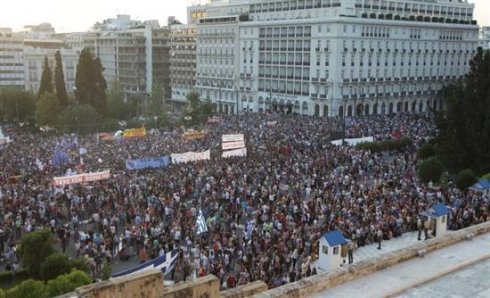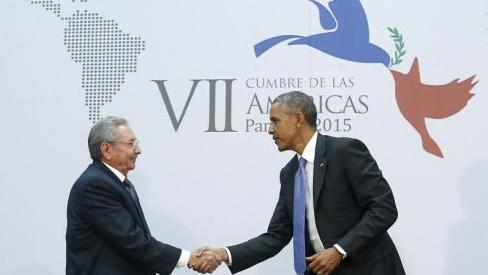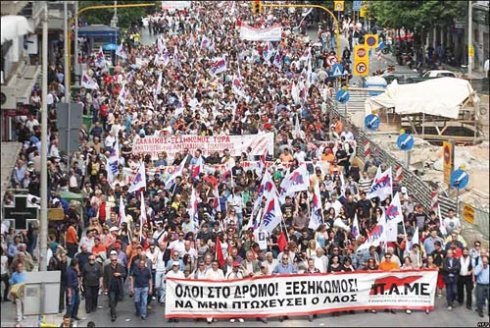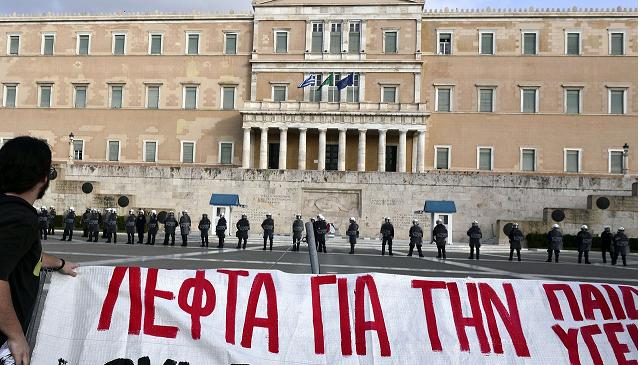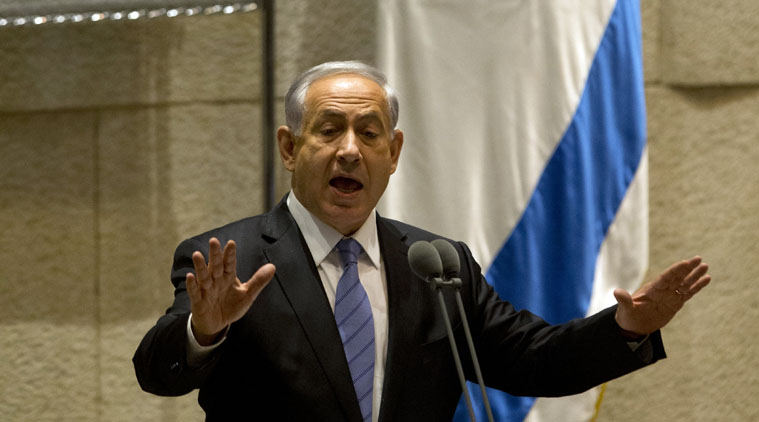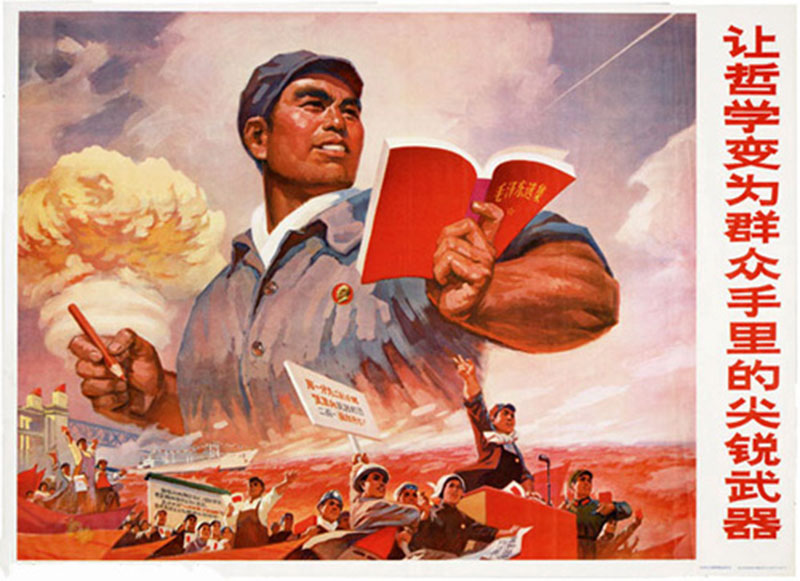Cuba
The victory of Playa Girón and the Latin American "anti-imperialists"
28/04/2011
by Craig Abernethy on Thursday, April 28, 2011 at 12:32am
"50 years after the great victory of Playa Girón!! Viva Fidel! Viva Cuba Socialista! Venceremos!" Thus, President Hugo Chávez saluted the historic Cuban epic through his Twitter account. His Cuban counterpart Raúl Castro began his opening speech (central report) to the Sixth Congress of the Cuban Communist Party, by calling for "following the example of the heroic fighters of Playa Girón."
However, this rhetoric is smoke to cover a strategy opposed to the interests of the masses of workers, the people and the campesinos of Cuba and Latin America.
The Revolution and the victory at Playa Girón
The invasion through Playa Girón (or "the Bay of Pigs") was the highest point of the campaign of direct military aggression by the US against the Cuban Revolution, that would then continue with more attacks, acts of sabotage, attempts at assassinations and, above all, through the savage economic blockade that is still going on.
On April 15, 1961, the invasion began with an air attack against Cuban military airports to neutralize the Air Force and allow the landing of some 1,500 Cuban counter-revolutionaries and mercenaries, trained, financed and organized by the CIA under orders first from Eisenhower and, afterwards, Kennedy. The imperialist attack was made worse by the treacherous maneuver of camouflaging the bombers with fake Cuban insignias to get around the air defenses.
The following day, in an historic act vindicating those who died in the bombing, Fidel Castro declared the socialist character of the Revolution and placed himself at the head of the resistance to the invasion. 20,000 militia members and troops of the Rebel Army surrounded the invasion force and, fighting relentlessly, achieved their mass surrender on April 19. This defeat of US imperialism has no precedent in Latin America, and it is the high point of the Revolution.
The workers’ and popular militias defeated imperialism
Already, towards the end of 1959 and, in the face of increasingly radical measures that the government was taking (especially the Agrarian Reform Law of July 1959 and, later, the nationalizations of the big US enterprises), the White House had disapproved of Castro and "the bearded men" and began to encourage counter-revolutionary insurrections, attacks and acts of economic sabotage. As a self-defense measure, on October 26, 1959, the National Revolutionary Militias and the Committees for the Defense of the Revolution were created. The influx of the workers and the people was immediate and massive. In a few months, the revolutionary forces that did not exceed a thousand when the dictator Batista was defeated, would go on to have hundreds of thousands of fighters ready to give their lives for the Revolution.
The victory of Girón sealed the victory of the socialist revolution in Cuba, a revolution led by workers and campesinos, who expropriated the capitalists and threw out imperialism, by constituting the first workers’ state on the continent, that would become a symbol of anti-imperialist and anti-capitalist struggle during the 1960’s and 1970’s throughout Latin America.
The phenomenal rise of workers and campesinos, on the one hand, and intransigent pressure from US imperialism on the other, put Fidel and the M26 government in front of a situation without space for a "democratic revolution" that was its original program, forcing it to ever-increasing political radicalization that Che Guevara explained as the "revolution through a counter-coup" [1]. However, the fact that the workers were not central [to the process in Cuba] and the lack of a revolutionary party leading the process allowed the petty bourgeois leadership to be able to control the process and then institutionalize it through the formation of the Cuban Communist Party (PCC) and the establishment of a reactionary single-party regime that stifled the revolutionary energy of the masses and prevented Cuba from turning into the spearhead of the Latin American revolution. For that reason, as well as the defense of the revolutionary accomplishments, we maintain the need to sweep away the bureaucracy and impose a real workers’ government based on workers’ and campesinos’ councils, that is, a political revolution that will transform Cuba into a bastion of the world revolution.
Today’s "anti-imperialists"
The claim that "progressive" and "anti-imperialist" leaders like Chávez and Castro are now laying to the exploit at Playa Girón, is false and demagogic. They are not raising it to transform it into a new banner of struggle of the peoples against imperialist control, but to conceal their real strategy. First, to put it at the service of "Twenty-first century socialism," that is, "socialism" with businessmen, that keeps Venezuela’s backward and dependent capitalist structure intact, permits big deals for foreign monopolies and guarantees capitalist property.
Second, to strengthen their authority to apply increasingly profound, pro-capitalist measures from the new Guidelines that the Sixth Congress has just approved, while they impose austerity on the Cuban workers with layoffs and the elimination of benefits.
All the fanfare displayed by them both around that historic event is not to imprint a militant morale on the Latin American masses, to confront the class enemy and imperialism, but in order to hide behind their banners, present themselves as "revolutionaries," and make the masses accept, in a disciplined manner, the current situation and the austerity measures they are imposing.
The battle of Playa Girón showed that imperialism can be defeated in Latin America with the revolutionary mobilization of the masses and by striking at its economic interests as well as those of its local bourgeois partners. But Raúl and Fidel Castro are not now friends of the Latin American Revolution, but of preserving their own power by advancing toward capitalist restoration. And Chávez is not a friend of the Cuban Revolution, but of Castro’s bureaucracy.
NOTASADICIONALES
[1] Shortly before the outbreak of the Second World War, the Russian revolutionary Leon Trotsky explained that "it is not possible categorically to deny a priori the theoretical possibility that under the influence of a very exceptional combination (war, defeat, financial crash, revolutionary offensive of the masses, etc.), the petty bourgeois parties, including the Stalinists, will be able to go further than they themselves desired on the road of a break with the bourgeoisie." We think that this hypothesis of Trotsky, that was realized in several countries after that international conflagration, explains the Cuban case, where a leadership neither working-class nor revolutionary socialist, ended up expropriating capital and expelling imperialism. For a more complete analysis of the genesis of the Cuban workers’ state, see La revolución permanente en Cuba, Facundo Aguirre and Gustavo Dunga en Estrategia Internacional N° 20.
